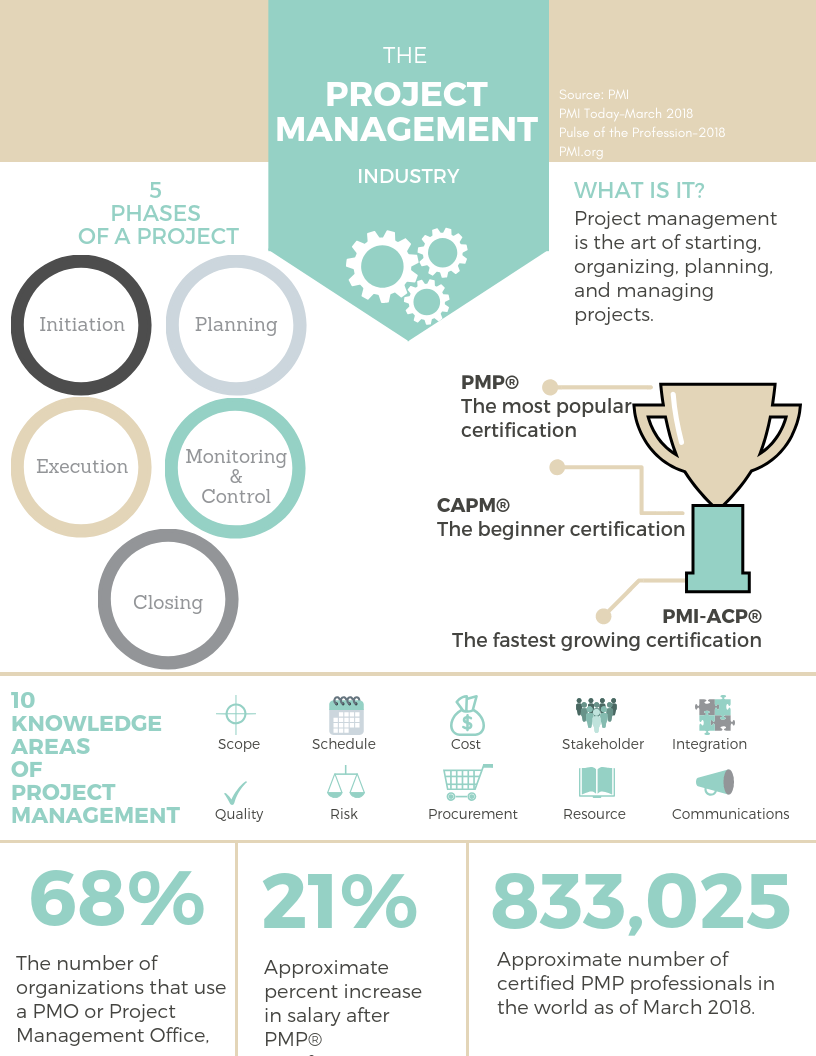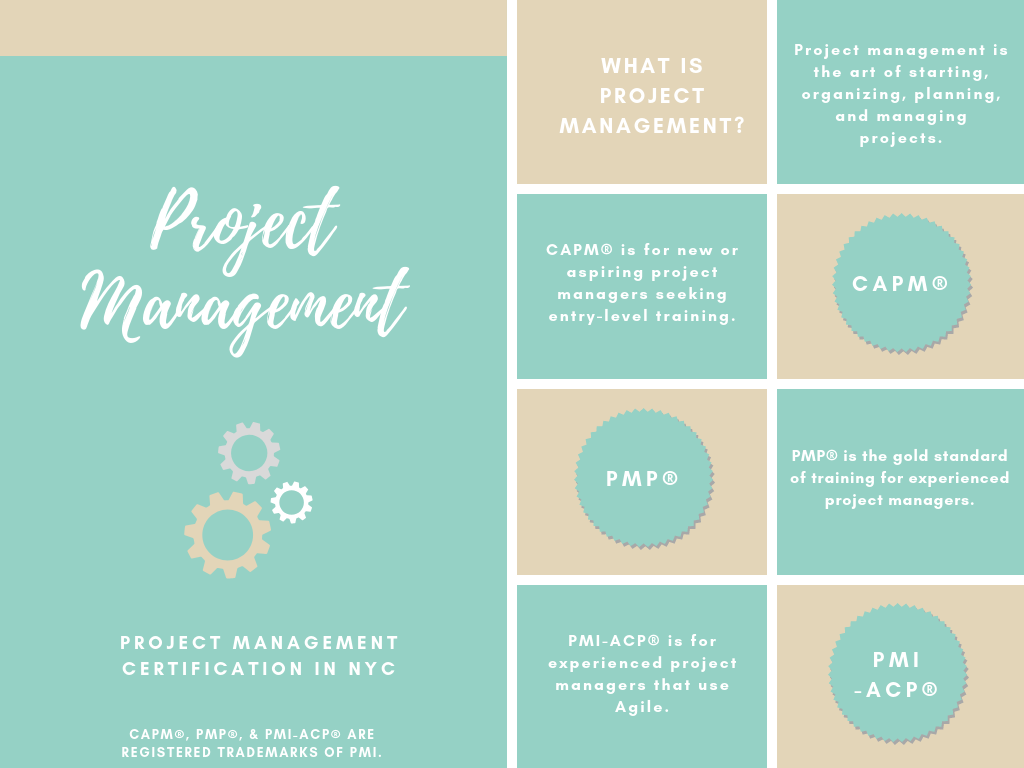PMP Certification & Exam Prep
Free Project Management Tutorials, Guides, and Resources
Learn project management techniques and prepare yourself for a PMP or CAPM certification with these free tutorials and resources.
Learn project management techniques and prepare yourself for a PMP or CAPM certification with these free tutorials and resources.
The 10 Knowledge areas are key in not only preparing for the PMP® Exam, but to become a better Project Manager and effectively manage your projects.
All 49 processes and 10 Knowledge areas are tied back to the 5 Foundational process groups. These processes provide the essential framework for any project.
Quality management ensures that an organization, product or service is consistent. It has four main components: quality planning, quality assurance, quality control, and quality improvement. Quality management is focused not only on product and service quality but also on the means to achieve it.
Project management is the art of starting, organizing, planning, and managing projects. Key features of a project include that it is unique, not a regular process; temporary, with a definite start and completion date; and mission-oriented, initiated with a specific goal to achieve. Examples of projects include the construction of a new hotel in Las Vegas, building a mobile app, or launching a new service or branch of business.

Managing scope, cost, and time are the critical tasks of the project manager role. The project manager ensures all project tasks close (scope), as scheduled (time), and without exceeding the budget (cost). If the project runs smoothly, and everyone does their part, the project manager’s job may seem easy. On the contrary, if the project is unsuccessful, late, or exceeds budget, the project manager is held responsible.
Project Management courses at NYIM prepare you for the PMI Project Management Professional (PMP®) exam, considered to be the gold standard certification in project management. Introductory project management courses offer the basics of project management, including the knowledge areas and project management stages. The Advanced Project Management Course digs deeper into the project management methodology.
Project management professionals can earn certification in both the field of project management or individual project management methodologies. The gold-standard of project management certification is PMI’s Project Management Professional or PMP® certification. Learn more about our PMP® certification training and project management classes in NYC.

In this guide, we'll review the most frequently asked questions relating to earning a PMP or CAPM certification or enrolling in our PMP Certification Bootcamp or CAPM Certification Bootcamp.
Planning Resource Management gives guidance in defining the roles and responsibilities. Resources include team members, money, supplies, buildings, and other necessary resources to complete a project.
Scope Management is the collection of processes which ensure that the project includes all the work required to complete the project but also make sure to exclude anything that is not necessary or part of the project. The scope is defined in the project scope statement which defines those boundaries.
Scope creep is when the project stretches beyond its original vision. There are continuous incremental changes that cause the project to grow without proper authorization.
Iron Triangle represents Scope, Cost and Time and is often thought of as the most critical concept in project management.
Showing 5 of 27 entries